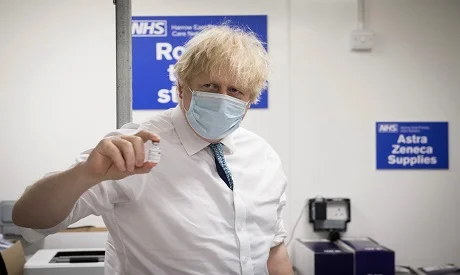On January 29, 2021, the European Union (EU) retracted its threat to impose export controls on COVID-19 vaccines to Northern Ireland amid a dispute with the United Kingdom over limited vaccine supplies.
The decision followed a warning from the World Health Organization (WHO) against “vaccine nationalism,” as global COVID-19 deaths approached 2.2 million and concerns grew about equitable vaccine access for less affluent nations.
AstraZeneca Supply Shortfalls
The conflict stemmed from production issues at AstraZeneca, a British-Swedish pharmaceutical company, which announced it could deliver only a fraction of the vaccine doses promised to both the EU and the UK. This shortfall intensified competition between the two parties, each insisting on receiving their contracted allocations.
Threat to Brexit Agreement
In response to the supply constraints, the EU initially threatened to override a key provision of the Brexit deal, known as the Ireland/Northern Ireland Protocol, which ensures the free flow of goods across the Irish border.
The proposed restrictions would have limited vaccine exports to Northern Ireland, prompting strong objections from British Prime Minister Boris Johnson, who expressed “grave concerns” over the move.
EU’s Reversal and Response
Following backlash, the European Commission issued a statement late on January 29, confirming that it would “ensure that the Ireland/Northern Ireland Protocol is unaffected.”
Irish Prime Minister Micheal Martin welcomed the EU’s decision to backtrack, emphasizing the importance of maintaining the protocol.
Transparency and Export Controls
On the same day, the EU published a redacted version of its contract with AstraZeneca to clarify supply commitments. Additionally, it introduced a mechanism to potentially block exports of vaccines produced in the EU, signaling tighter control over vaccine distribution amid global shortages.
Global Implications
The WHO’s warning against vaccine nationalism highlighted the risk that wealthier nations’ competition for limited vaccine supplies could delay access for poorer countries. The EU-UK dispute underscores the broader challenges of ensuring equitable vaccine distribution during a global health crisis.






